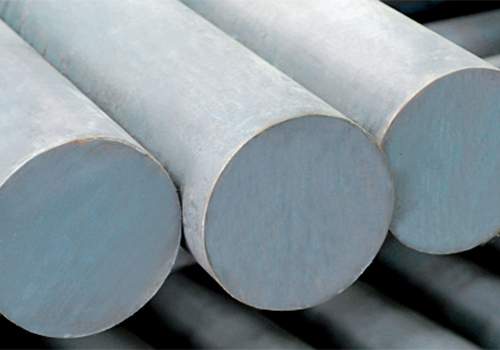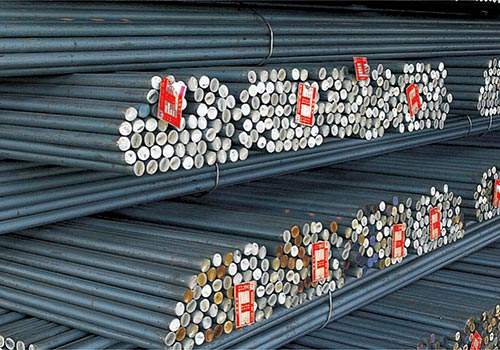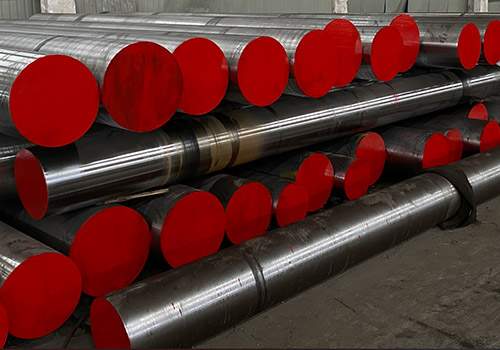
What Makes SAE 52100 Steel Ideal for Bearings?
Table of Contents
Introduction

SAE 52100 steel has established itself as a cornerstone material in the manufacturing of bearings due to its exceptional properties. This high-carbon, chromium-alloyed steel is synonymous with strength, wear resistance, and durability, making it the preferred choice in applications where precision and longevity are critical. From industrial machinery to automotive components, SAE 52100 steel plays a pivotal role in ensuring reliability and performance. This blog explores the unique properties of SAE 52100 steel, its manufacturing process, and the reasons behind its widespread use in bearing applications.
Henan Jiyuan Iron and Steel (Group) Co., Ltd. was founded in 1958. It has rich experience in production and research and development. It provides you with one-stop steel services and welcomes consultations from customers around the world.
What is SAE 52100 Steel?
SAE 52100 is a high-carbon, low-alloy steel renowned for its hardness, toughness, and exceptional resistance to wear. Its chemical composition and heat-treatment capabilities make it an ideal material for components subjected to high stress and friction, such as bearings.
Key Properties of SAE 52100 Steel
- High Carbon Content: Provides superior hardness and strength.
- Chromium Alloying: Enhances wear resistance and corrosion protection.
- Excellent Fatigue Resistance: Ensures durability under repeated loading cycles.
- Dimensional Stability: Maintains shape and size even under high temperatures and stress.
- High Surface Finish Potential: Ideal for precision machining.
Why SAE 52100 Steel is Ideal for Bearings
Bearings require materials that can withstand immense loads, friction, and wear without compromising on performance. SAE 52100 steel meets these demands through its unique properties.
Exceptional Hardness and Strength
The high carbon content in SAE 52100 steel provides exceptional hardness, crucial for bearing surfaces that need to resist deformation under heavy loads.
Superior Wear Resistance
Thanks to its chromium content, SAE 52100 steel resists wear and tear, which is critical for bearings that operate continuously in demanding environments.
High Fatigue Strength
Bearings are subjected to cyclic loading, which can lead to material fatigue. SAE 52100 steel’s high fatigue strength ensures a long service life, even in high-stress applications.
Excellent Machinability and Surface Finish
Bearings require precision manufacturing to minimize friction and maximize efficiency. SAE 52100 steel’s machinability and ability to achieve a fine surface finish make it a top choice for this application.
Chemical Composition and Mechanical Properties of SAE 52100 Steel
Understanding the chemical composition and mechanical properties of SAE 52100 steel is essential to appreciate its performance.
| Property | SAE 52100 Steel |
|---|---|
| Carbon (C) | 0.98% – 1.10% |
| Chromium (Cr) | 1.30% – 1.60% |
| Manganese (Mn) | 0.25% – 0.45% |
| Silicon (Si) | 0.15% – 0.35% |
| Hardness (HRC) | 60 – 67 (after heat treatment) |
| Ultimate Tensile Strength | ~2,070 MPa |
| Density | 7.81 g/cm³ |
| Elongation at Break | ~5% |
Manufacturing Bearings with SAE 52100 Steel


The journey of SAE 52100 steel from raw material to finished bearing involves several precise steps to maximize its properties.
Heat Treatment Process
Heat treatment is a critical phase in preparing SAE 52100 steel for bearing applications. The steel undergoes quenching and tempering to achieve high hardness and strength while maintaining toughness.
Machining and Grinding
After heat treatment, SAE 52100 steel is machined and ground to create bearing components with precise dimensions and smooth surfaces. These characteristics are essential to reduce friction and ensure seamless operation.
Testing and Quality Control
To guarantee performance, bearings made from SAE 52100 steel are subjected to rigorous testing for hardness, dimensional accuracy, and fatigue resistance.
Applications of SAE 52100 Steel Bearings
SAE 52100 steel bearings find applications across various industries due to their unmatched performance.
Automotive Industry
- Wheel bearings
- Transmission components
- Suspension systems
Industrial Machinery
- Conveyor systems
- Electric motors
- Heavy-duty machines
Aerospace Industry
- Jet engines
- Landing gear components
Medical Equipment
- MRI machines
- Surgical instruments
Alternatives to SAE 52100 Steel for Bearings

While SAE 52100 is a popular choice, other materials are also used in specific scenarios. Here’s a quick comparison:
| Material | Properties | Applications |
|---|---|---|
| SAE 52100 | High hardness, wear resistance, and fatigue strength | General-purpose bearings |
| Stainless Steel | Corrosion resistance, lower hardness | Marine and food-grade applications |
| Ceramic | Lightweight, high temperature resistance | Aerospace and high-speed applications |
| Bronze | Good lubrication properties | Low-load and low-speed applications |
Conclusion
SAE 52100 steel stands out as the ideal material for bearings due to its unmatched hardness, strength, and wear resistance. Its versatility makes it a trusted choice in industries ranging from automotive to aerospace. While other materials may be suitable for specific applications, SAE 52100 remains the gold standard for general-purpose bearing manufacturing. Understanding its properties, applications, and manufacturing process is crucial for anyone working in industries reliant on precision and durability.
FAQ
What is SAE 52100 steel?
SAE 52100 is a high-carbon, chromium-alloyed steel known for its exceptional hardness, wear resistance, and fatigue strength, making it ideal for bearings.
Why is SAE 52100 steel used for bearings?
Its high hardness, wear resistance, and ability to withstand repeated loads make it the perfect material for bearings, ensuring long service life and reliability.
Can SAE 52100 steel be used in high-temperature applications?
Yes, SAE 52100 steel maintains its properties at moderately high temperatures, but extreme heat may require alternative materials like ceramics or specialized alloys.
How is SAE 52100 steel heat-treated?
SAE 52100 steel undergoes quenching and tempering to achieve high hardness and strength while retaining toughness.
What are the limitations of SAE 52100 steel?
While SAE 52100 excels in wear resistance and strength, it may not be suitable for environments requiring high corrosion resistance.






